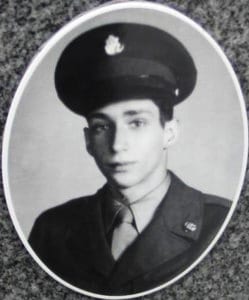By Gavin Ellman, Post 112
Unsurprisingly, it was hot in Iraq the day I left. The first thing I felt when we landed back home was profound joy; the second was profound cold since I was standing outside in the middle of an Alaskan winter night. Thus began the first of many conflicting emotions.
Of course, returning home is wonderful. My first weeks home from my tours were times of happiness. There was so much I’d missed. From the little conveniences of just being in air conditioning, to the big celebrations of seeing the people I loved and missed so much. But there was also the struggle to adjust, which crept into my life as the excitement started to fade.
At first it was little things. I missed the convenience of free water bottles in every office or truck. I had to find an apartment and, occasionally, buy groceries. There were bills, chores, and all those little headaches of life. But there was also something big missing.
Overseas, and in the military in general, I knew what to do. I had a place and I had a purpose. I didn’t appreciate it fully when I was there, but I felt its absence more and more the longer I was home. 12-hour patrols were grueling, but they were familiar burdens. I knew who to count on and who counted on me.
After my first tour, the pressures of military life and the promise of the next tour meant I didn’t have to fully confront this uncomfortable absence for long. But when I finally did transition from active duty, there was no avoiding it: what was I going to do with this freedom I’d apparently been fighting for?
I left Fort Benning for the last time in August 2015 and in many ways, it was more difficult than redeploying from Iraq or Afghanistan. I was heading for Atlanta and a new life. I wasn’t coming back. After 10 years of active service, I hadn’t realized how comfortable I’d become in the Army. The thought that “this is my last paycheck” rattled me. What was I going to do? How would I fit back into a community where I’d always be “the Army guy”? For months, even my haircut still said I was in the Army. I did eventually give up the reflective belt, at least.
There are many resources out there to help, of course. The Army has its required classes. There are countless companies and organizations reaching out. But those didn’t help me feel any less alone. Classes and forms can’t help with that.
Only people could.
There was my wife, who was with me for every step of the journey. She believed in me and in our shared future. I knew I could count on her and, even better, I knew she counted on me.
And there were those that went before me to start new lives and careers outside the service. A retired chaplain introduced me to the Jewish community of Atlanta, where we now make our home. My former engineering instructor coached me through the painful process of applying to business school, where I met other veterans on similar paths. Beyond the practical help we could offer each other, just knowing there were others made all the difference.
And that’s why I believe in Jewish War Veterans. Not only are we connected by common service, we are connected by our shared faith, culture, and bond as a people. JWV brings together all branches and generations and can bridge the gap between those in service, those who have served, and the vibrant Jewish communities that exist throughout the country.
We know there’s much work to do. We need to build the bridges between the younger generation of Jewish American Warriors and the historical membership base of JWV. Our differences are real. We communicate in different ways, are at different phases of life, and perhaps expect different things from our local post. But I know that which binds us—our service and our Jewish identify—counts for far, far more.
With so many young Jewish veterans struggling as they come home, it’s time for JWV to come home and take its place at the intersection of Jewish military and civilian life.
Volume 72. Number 2. Summer 2018



